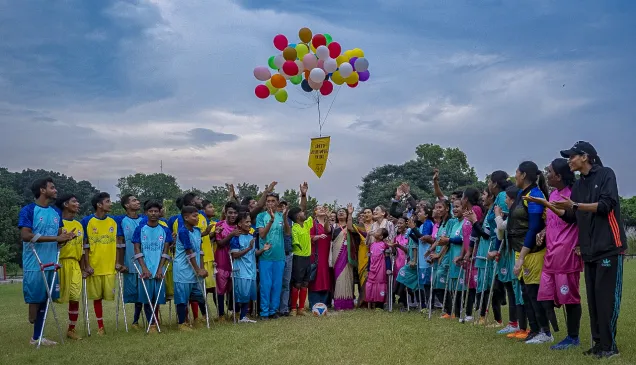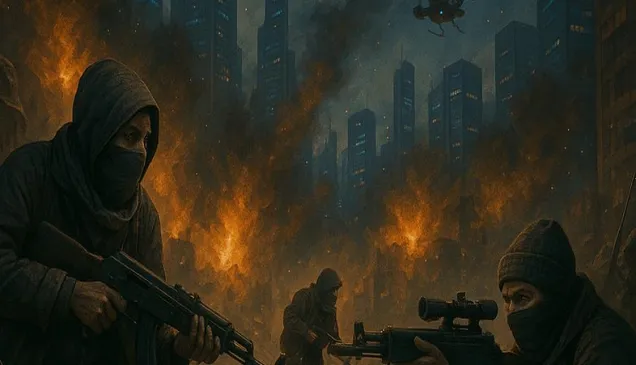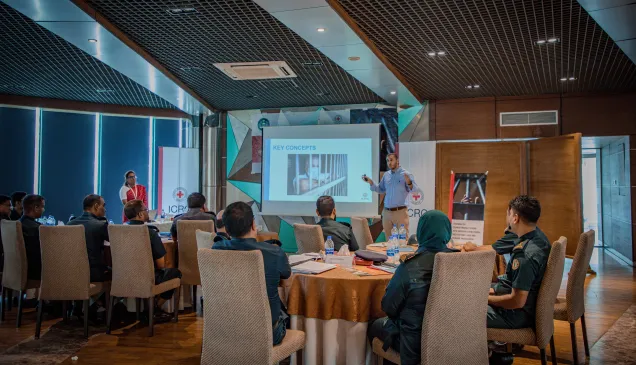The ICRC in Bangladesh: 2024 in images
As we look back on 2024, ICRC’s efforts in Bangladesh have been defined by resilience, inclusivity and unwavering humanitarian action. Through advocacy, training and direct assistance, we continue to uphold the dignity and protection of those most in need.
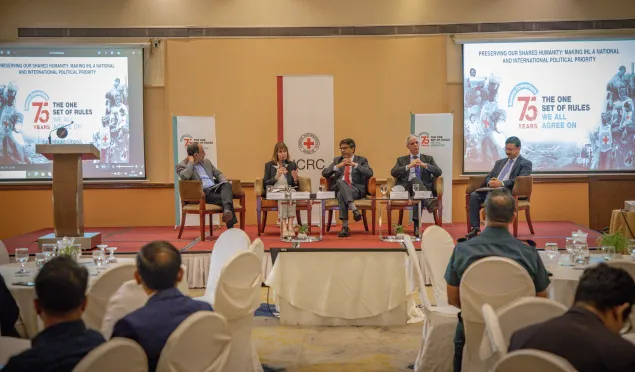
To commemorate this milestone, we brought together government officials, diplomats and humanitarian experts for a landmark event reflecting on the enduring importance of the Geneva Conventions. A photo exhibition highlighted the historical significance of the Conventions and the ICRC’s work in Bangladesh, while discussions called for renewed global political commitment to protecting civilians and humanitarian workers in conflict zones.
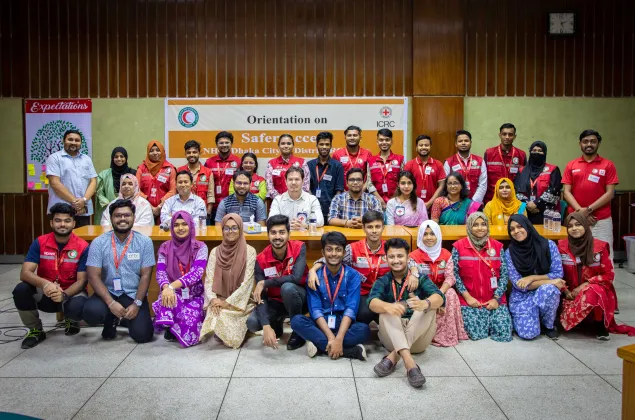
Equipping volunteers for humanitarian response in sensitive contexts
In partnership with the Bangladesh Red Crescent Society (BDRCS), we organized Safer Access training sessions for the National Society’s volunteers and staff across multiple districts. These sessions focused on identifying potential barriers to humanitarian assistance and equipped them with the necessary skills to work safely in challenging environments, ensuring that aid reaches those who need it most.
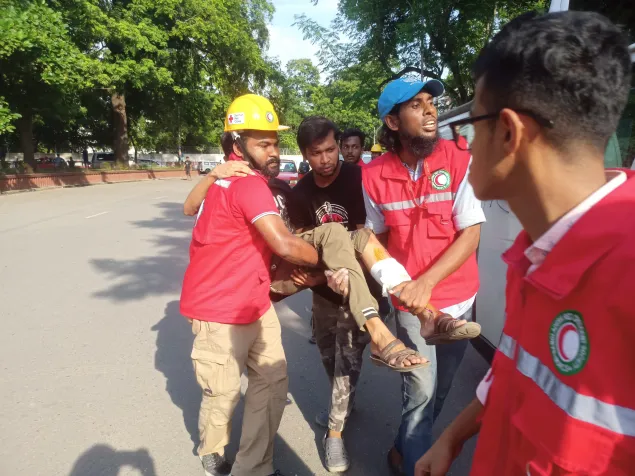
First aid and ambulance services
During the July-August protest movement, 21 first-aid responder teams of the BDRCS, comprising around 160 volunteers, were deployed under the ICRC-supported programme, First Aid in Other Situations of Violence and Emergencies. These teams provided first aid and ambulance services to more than 1,000 severely injured people, including those with gunshot wounds or head injuries, ensuring timely medical intervention.
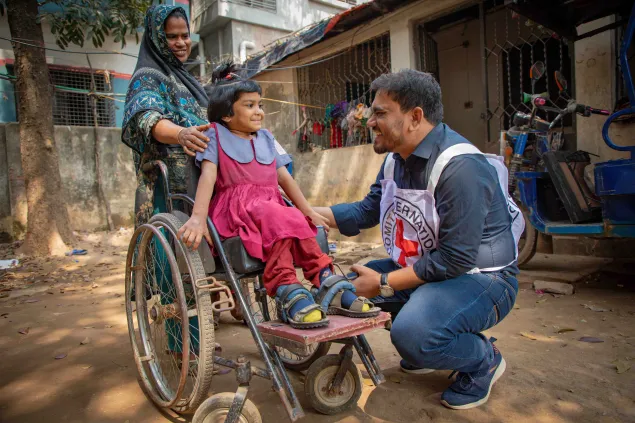
Supporting people with disabilities
An accident left Samia with a spinal cord injury, paralysing her from the waist down and changing the course of her life. Her family battled hopelessness as they sold their belongings to pay for her treatment. The ICRC’s microeconomic initiative (MEI), offered in partnership with the Center for the Rehabilitation of the Paralyzed (CRP), helped Samia’s family regain stability. While, the physical rehabilitation support gave Samia a new sense of hope and inclusion.
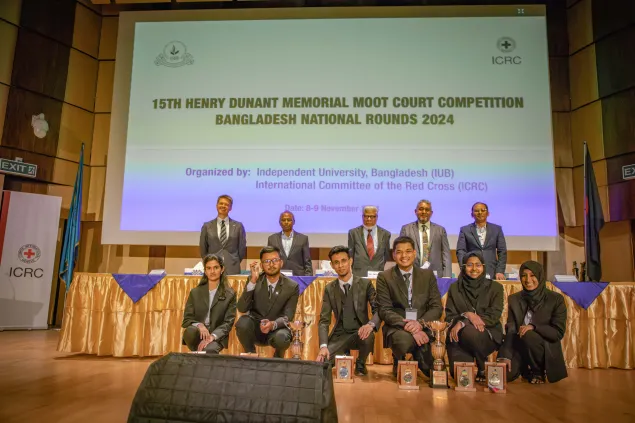
Promoting principles of IHL through moot court
The ICRC organized the national rounds of the 15th Henry Dunant Memorial Moot Court Competition, in partnership with the Independent University, Bangladesh. Around 16 teams of law students from across the country debated on critical issues related to international humanitarian law in a simulated courtroom environment. The event, that also marked the 75th anniversary of the Geneva Conventions, provided them a platform to interact with a panel of legal professionals, judges and expert on IHL.
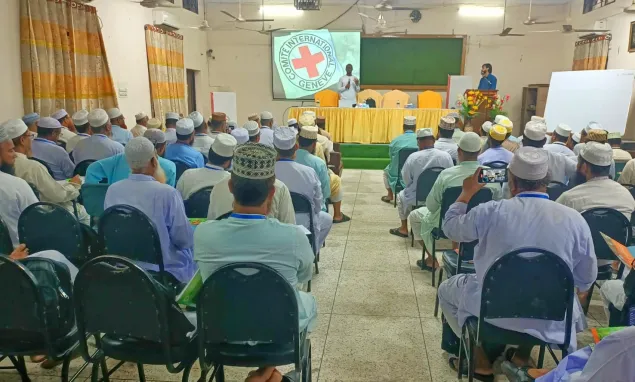
Exploring connections between IHL and Islamic jurisprudence
The ICRC has fostered a long partnership with BMTTI, to promote IHL and explore its connections with Islamic jurisprudence. The partnership provides an opportunity to interact with Islamic scholars who are shaping the next generation of religious leaders in the country. Through such initiatives, the ICRC helps to build bridges between international humanitarian principles and religious education, and a deeper understanding of the shared values of humanity and protection in times of conflict.
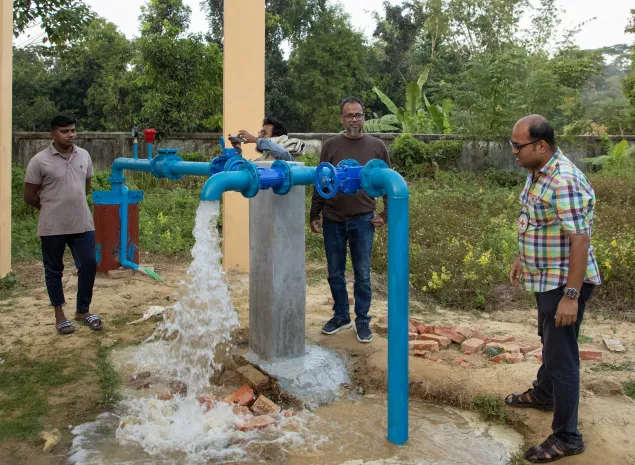
Access to clean water for detainees and prison staff
To ensure access to clean water services for all detainees and staff at Cox's Bazar District Jail, the ICRC helped to install a new deep tubewell, a 500,000-litre central reservoir and a water supply line. The system is equipped with a thoughtfully designed pumping mechanism that ensures long-term water availability and prevents over-extraction. The overall objective is to improve the well-being of the detainees as well as of the prison staff and the conditions of detention.
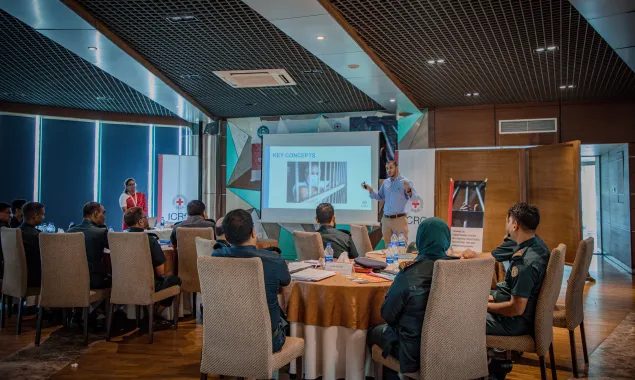
Workshops to transform prison system
In partnership with the Prisons Directorate, we organized two workshops – “Transforming Prisons into Modern Correctional Facilities” and “Humane Prison Management for Senior Prison Officers”. These workshops brought together jail superintendents, jailers and deputy jailers from across the country to align prison management methods with principles of safety, human dignity and humane treatment, following the Mandela Rules.
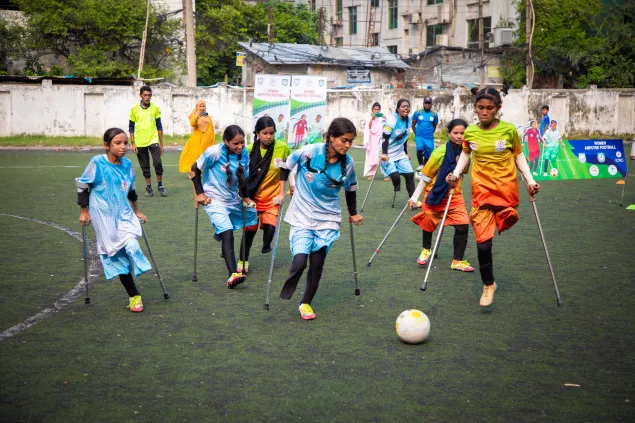
First-ever women’s amputee football training camp
We organized the first-ever women’s amputee football training camp in Bangladesh in partnership with Sports for Hope and Independence (SHI), the Bangladesh Amputee Football Association (BAFA) and the World Amputee Football Federation (WAFF) to promote the social inclusion of people with disabilities through sports. Amputee football serves as a platform for women and girls with disabilities to enhance their physical strength, build mental resilience and boost self-confidence.
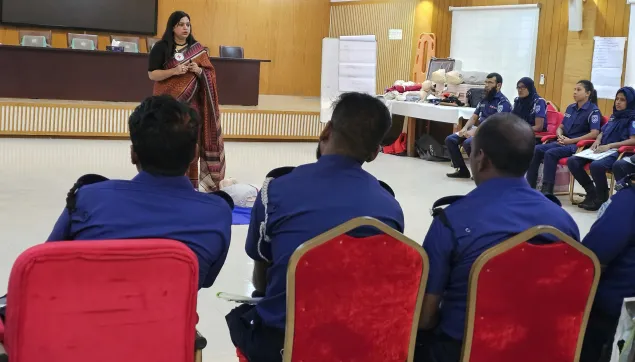
Enhancing application of first-aid techniques
We conducted a three-day Basic First-Aid training in Rangpur for 30 police officers, including 21 men and nine women, to improve their emergency response skills. Upon completion, 15 first-aid bags and a stretcher were donated to the participants to support their field readiness. These sessions are part of our ongoing efforts to enhance emergency response skills among security forces and medical personnel.
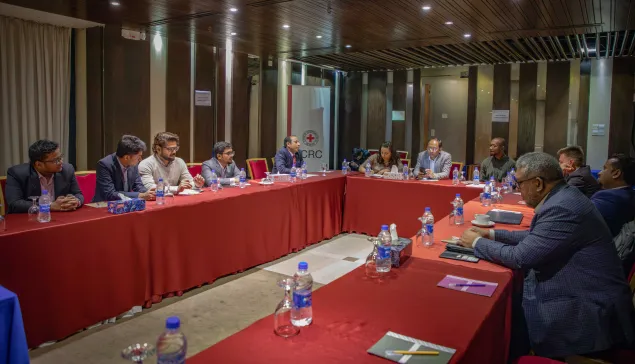
Seeking ways to promote the teaching of IHL
In November, we organized a session with academics and IHL instructors to assess the status of the teaching of international humanitarian law and identify ways to promote it in Bangladesh. At the end of the session, various proposals and suggestions were made by the participants that can potentially enhance IHL teaching.
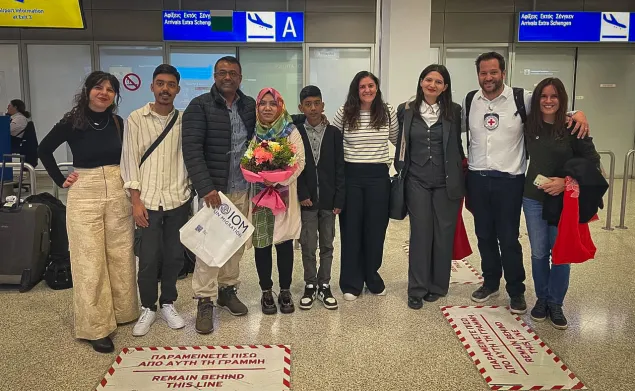
Reuniting a family separated for eight years
People suffer agonizing pain when they lose contact with their loved ones. After eight years of separation and unimaginable hardship, Mariam’s family was reunited in Greece through the support and expertise of the ICRC. In Bangladesh, the ICRC and the BDRCS help to reconnect families that are separated by violence, migration, disasters or other challenges through its dedicated Restoring Family Links network.
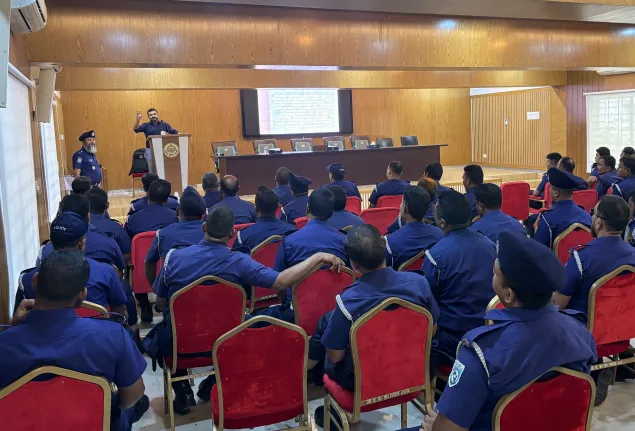
Training security forces in humanitarian principles
We organized an awareness session for 120 police officers of Rangpur District Police covering topics on the use of force, the code of conduct for law enforcement officials and other governing principles for the police force. A Basic First Aid training session was also held for 30 police officers of the dame district. They also received 15 first-aid bags and a stretcher to strengthen their preparedness to handle potential situations of violence.

